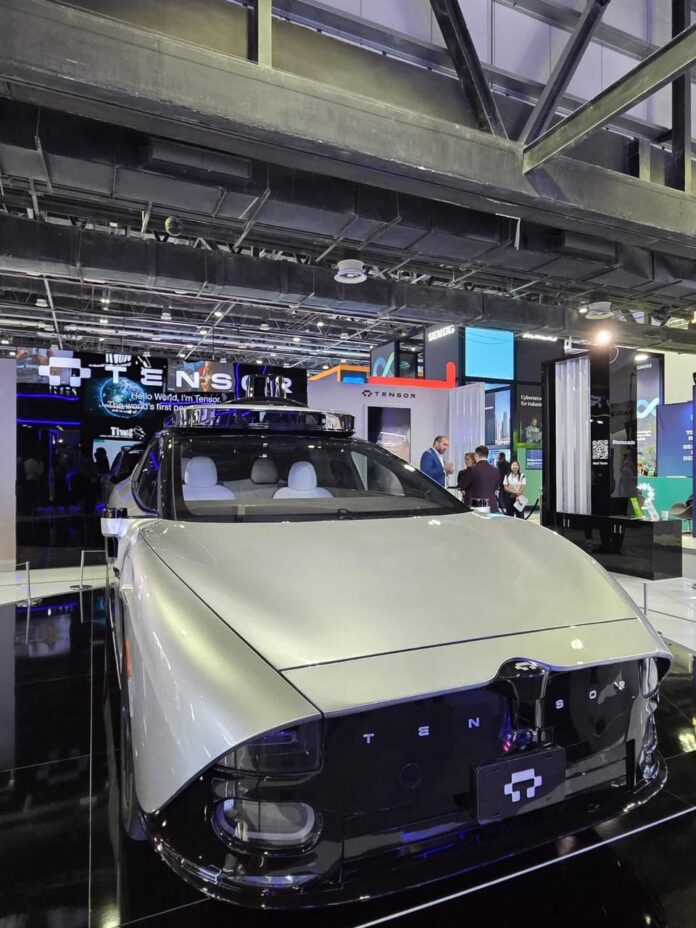Dubai, UAE: At this year’s GITEX Global, one of the most talked-about showcases came from Tensor, an emerging autonomous mobility company, which unveiled its futuristic “RoboCar” prototype, a fully electric, self-driving vehicle that hints at the next frontier of intelligent transportation.
What captured additional attention beyond its sleek design and autonomous capabilities was its production story: Last month, Vietnamese media reported that the RoboCar — the world’s first self-driving EV available for public purchase — is being manufactured by VinFast, Vietnam’s fast-growing global EV maker. While neither Tensor nor VinFast has officially confirmed the partnership, the news has sparked strong interest across the industry.
If confirmed, such a collaboration would mark a notable milestone for both companies — combining Tensor’s AI and autonomous driving systems with VinFast’s reputed large-scale EV manufacturing expertise. Industry observers note that this rumored partnership, if accurate, would highlight VinFast’s expanding global presence and advanced production capabilities.
Industry analysts believe that, if the report holds true, production could take place at VinFast’s state-of-the-art complex in Hai Phong, Vietnam.The facility is known for its high automation rate, precision engineering, and sustainable production processes — characteristics that would makeit a natural fit for Tensor’s ambitious project. This potential collaboration highlights how smart manufacturing and AI could converge to accelerate the evolution of electric mobility worldwide.
VinFast has already delivered over 100,000 EVs in the first three quarters of 2025 — a fact that may explain why it is being linked to projects like Tensor’s RoboCar. Analysts say such reports reflects growing recognition of Vietnam’s emergence as a capable and trusted EV manufacturing hub.
While details about the final RoboCar specifications remain under wraps, early demonstrations have showcased an impressive blend of AI-enabled perception, adaptive driving algorithms, and user-centric design. Deliveries are reportedly expected to begin in the second half of 2026, though neither Tensor nor VinFast has confirmed any production details at this stage.
If VinFast indeed participated a RoboCar project, it could mark a new step in their journey from a domestic pioneer to an active global collaborator in the field of autonomous mobility.” Beyond the immediate business implications, these reports also point toa broader shift: Vietnam’s rising prominence in high-tech manufacturing and sustainable innovation.
At GITEX, the RoboCar stood as more than a prototype and it represented the convergence of AI, automation, and sustainability in motion. And while official details remain limited, the connection to VinFast has added intrigue to one of GITEX 2025’s most talked-about showcases.





